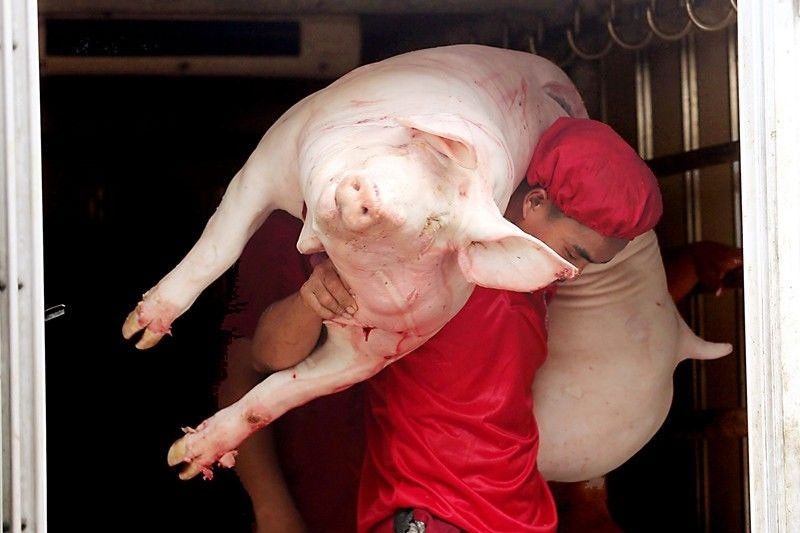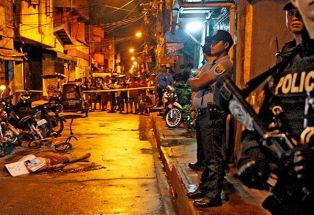Meat processors to stop buying local pork

MANILA, Philippines — The Philippine Association of Meat Processors Inc. (PAMPI) has asked its members to temporarily stop the purchase of local pork as raw materials to contain the spread of African swine fever (ASF).
“We believe that it is safer for the meat processing industry not to buy local pork until they are able to assure government authorities and the consuming public that local pork is ASF-free,” PAMPI spokesman Rex Agarrado said.
He noted that several meat processors have stopped buying local pork as a result of the latest findings.
“We urge authorities to randomly test for ASF pork not just here in Luzon but even in the Visayas and Mindanao areas to restore consumer confidence,” Agarrado said.
The group decided to halt all purchases of pork materials from local producers until such time that clear and enforceable policy on movement, distribution and sale of processed pork products are in place.
“PAMPI recognizes the authority of local government units (LGUs) to protect the welfare of constituents in the agriculture sector but at the same time, pleads that such protection be also accorded other vital sectors of the economy,” Agarrado said.
“Repeated assurances by health authorities that ASF does not pose any risk to the health of humans will have no value and meaning for the meat processing industry and consumers as well if its products are intercepted and confiscated on the way to market or sent back to the factories,” he added.
However, the National Federation of Hog Farmers (NFHF) countered PAMPI’s claims, emphasizing that local pork is safe and if their hogs were infected with ASF, they would never reach slaughterhouses.
“This is just adding injuries to all of us because we, as local producers, assure that pork is safe to eat,” NFHF president Chester Tan told reporters on the sidelines of the National Food Security Summit on Tuesday.
“If we know that the pigs are from (a) contaminated area, it is very impossible that we will allow it to reach our local markets,” he added.
Hog raisers also slammed PAMPI, as the group of processors actually source 95 percent of their raw materials from abroad, with only five percent being local.
“And we do not know where they are sourcing their local pork,” Tan said.
The Samahang Industriya ng Agrikultura (SINAG) said it is callous of PAMPI to blame the very victims of ASF as thousands of backyard raisers have already lost their livelihood, with farmgate prices falling by 40 percent and demand by 30 percent.
“The hog industry has lost P10 billion in the last two months. But are we whining now and blaming others for the misery that we are facing? The original sin of the ASF are pork imports, the very raw material of this processors’ group,” SINAG chairman Rosendo So said.
“Why don’t they police their own ranks, instead of blaming maliciously the hapless backyard raisers? The threat to stop buying from local hog raisers is pure bluff and is nothing but an empty threat. They have never bought from us in the first place,” he added.
SINAG reiterated its call to stop the importation of pork until the Quarantine First Policy – strip inspection at the port of first entry – is established.
“More than 80 percent of local processors are not members of PAMPI and we continue to rely on their patriotism and support to the local hog industry,” So said.
Contrary to PAMPI’s claim, SINAG said farms are doing voluntary ASF-testing and are issued certificates from the DA that their hogs are ASF-free.
“But where are the ASF-free certificates of these processed pork products? We support the directive of LGUs to also require the ASF-free certificates from processed and frozen pork that passed through their areas of concern,” said So.
He said in the midst of the ASF crisis, the hog industry is standing side by side with the pro-local industry processors, LGUs and national legislators in combatting ASF “to assure the pork-loving Filipino consumers that our Pinoy pork is safe to eat.”
So vowed that they will work with pro-local meat processors to produce Filipino Christmas hams. He added they will work with market vendors, wholesalers and retailers and ask them to lower the retail price of pork.
ASF-tagging
Meanwhile, organized labor yesterday warned of massive job losses unless the government stops misinformation about meat products tainted with ASF.
“Thousands of workers might lose their jobs caused by misinformation and confusion made by different government officials speaking differently about… ASF virus tainted food and byproducts,” Associated Labor Union (ALU) national executive vice president Gerard Seno said in a statement.
Seno called on concerned government agencies to coordinate and speak as one in order to prevent confusion and fear among consumers.
“Government officials must double-check and carefully verify through information control and management protocols before releasing any authorized information to the public about the meat and other food products tainted with (the) ASF virus,” Seno stressed.
If misinformation continues to prevail in the market, Seno said, thousands of jobs in small, medium and large food and meat processing and manufacturing enterprises located in different parts of the country will be affected. – With Eva Visperas, Mayen Jaymalin
- Latest
- Trending




























